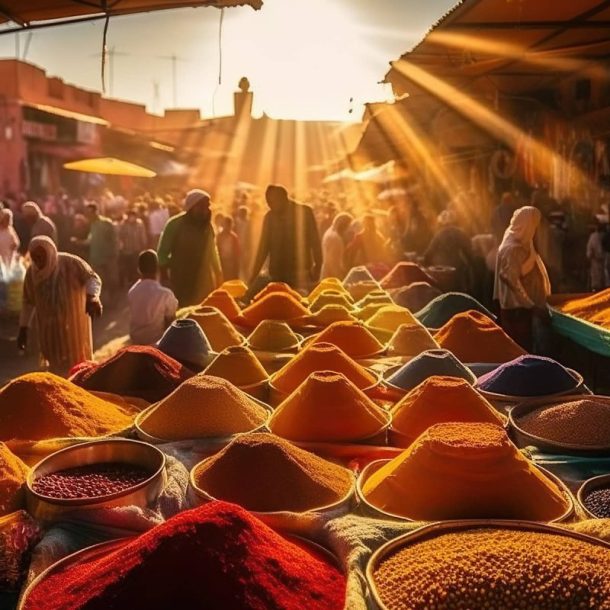

Close

Travel vaccines are an essential part of preparing for any international adventure, especially when planning to explore the vibrant beauty of Morocco. Whether you’re gearing up for a leisurely escape, an adventurous journey, or a deep dive into Morocco’s rich culture, safeguarding yourself from preventable diseases is a top priority. This guide will walk you through the importance of travel vaccines, along with tips on local customs, weather, language, accommodations, transportation, safety, cuisine, budgeting, attractions, connectivity, and packing. Contact our agency via WhatsApp for all your tourist bookings in Morocco, and let us help make your trip safe and unforgettable!
Traveling to Morocco can expose you to various health risks, as the country has different endemic diseases compared to what you may be familiar with. Travel vaccines are your shield against serious illnesses like hepatitis A and B, yellow fever, typhoid, meningococcal disease, rabies, and Japanese encephalitis. Getting vaccinated ensures not just your health but also prevents the spread of diseases when you return home. This responsible step gives you peace of mind, so you can fully enjoy your Moroccan adventure.
The specific vaccines you’ll need depend on your destination, length of stay, age, health status, and vaccination history. Certain regions in Morocco might pose different health risks, and some may even require proof of vaccination for entry.
It’s critical to consult a healthcare professional well in advance of your journey. Your primary care doctor or a travel medicine specialist can provide tailored advice based on your travel itinerary and personal health circumstances. During the consultation, be ready to share your travel plans and medical history, so they can review your immunization records and recommend any additional vaccines you may need. They will also offer useful tips on other health precautions for your Moroccan travels.
Timing is everything. Some vaccines need multiple doses or time to become fully effective. It’s best to start the vaccination process at least 4-6 weeks before your departure. This allows your body to build immunity, ensuring you’re well-protected during your trip. Planning ahead helps you avoid any last-minute stress, especially since some vaccines might be in limited supply or require special orders.
If you’re pressed for time, don’t worry—still consult with a healthcare professional. They might recommend an accelerated vaccine schedule or offer guidance on minimizing health risks. While planning ahead is ideal, options exist for last-minute travelers, including potentially receiving certain vaccines upon arrival. However, this should be a last resort since the quality and availability of vaccines abroad might vary.
Vaccination is just one piece of the puzzle. To maintain your health throughout your travels, it’s important to practice good hygiene, be mindful of food and water safety, protect yourself from insects, and stay sun-safe.
Proper hygiene is your first line of defense. Wash your hands frequently with soap and water, particularly before eating and after using the restroom. If soap isn’t available, use an alcohol-based hand sanitizer. Avoid touching your face, and carry tissues to cover your mouth and nose when sneezing or coughing. Always dispose of used tissues properly and wash your hands afterward.
Food and water safety are critical, particularly in developing countries. Stick to bottled, sealed drinks, and avoid ice cubes, as they may come from contaminated water. Opt for well-cooked, hot meals and steer clear of raw or undercooked meats and seafood. When it comes to fruits and vegetables, peel them yourself or choose cooked options. Be cautious of salads and raw veggies unless you’re certain they’ve been washed with safe water. Choose street vendors with visible good hygiene.
Insects like mosquitoes can carry diseases such as malaria, dengue fever, and the Zika virus. Protect yourself with insect repellent containing DEET or picaridin, and apply it regularly. Wear long sleeves, pants, and closed shoes to reduce exposed skin. Consider treating your clothing with permethrin for extra protection. In high-insect areas, use bed nets and stay in accommodations with screened windows and doors.
Morocco’s tropical destinations and high altitudes can mean strong sun exposure. Use a broad-spectrum sunscreen with at least SPF 30, and reapply every two hours or after swimming. Wear protective gear like hats, sunglasses, and loose, breathable clothing. Stay hydrated by drinking plenty of water and avoiding excessive alcohol, which can lead to dehydration.
Travel vaccines are a key component of having a safe and enjoyable experience in Morocco. By taking proactive steps to protect your health, you can focus on making unforgettable memories and embracing new cultures without the worry of preventable illnesses. Remember to consult with a healthcare professional, start your vaccination process early, and maintain good hygiene practices throughout your journey.
El Toro HOTEL
Route de Tetouan Lot La Belle Vue
N°800-Tanger
El Toro HOTEL
Route de Tetouan Lot La Belle Vue
N°800-Tanger
